Explore Humane Canada’s Summit for Animals 2026 PROGRAMMING
Event Overview: Pre-Conference Deep Dives and Summit
Pre-Conference Deep Dives (sponsored by Edmonton Humane Society) – These are optional, add-on sessions held before the main two-day Summit. Participants choose one of six focused educational tracks and stay within that track for the full day, allowing for in-depth, immersive learning on a specific topic. Explore the six pre-conference deep dives educational tracks here.
Summit for Animals – The main two-day conference offering 5 to 6 tracks each day, with the flexibility to move between sessions. Unlike the Deep Dives, attendees can explore a variety of topics across all tracks. The Summit also includes main stage presentations, exhibitors, and the full delegate experience, creating a rich opportunity for connection, learning, and engagement across the animal welfare community.
In short:
- Deep Dives = Pre-conference, additional cost, focused on one educational track all day, optional.
- Summit = Main conference with multiple tracks, exhibitors, main stage sessions, activities, and full community participation
Our conference has been approved for Continuing Education Credits/Units by the following organizations

RACE Approval Pending
Tour A
- 9:30 am - Arrival at the BC SPCA Vancouver Shelter
- 9:45–10:45 am - Tour
Get a behind-the-scenes look at the BC SPCA Vancouver Shelter and Hospital with this free one-hour tour—offered before the 2026 Humane Canada Conference.
Space is very limited and spots fill up quickly—secure your spot early.
Please note attendees are responsible for making their own way to/from the shelter.
Tour B
- 11:00 am - Arrival at the BC SPCA Vancouver Shelter
- 11:15–12:15 pm - Tour
Get a behind-the-scenes look at the BC SPCA Vancouver Shelter and Hospital with this free one-hour tour—offered before the 2026 Humane Canada Conference.
Space is very limited and spots fill up quickly—secure your spot early.
Please note attendees are responsible for making their own way to/from the shelter.
Tour C
- 12:30 pm - Arrival at the BC SPCA Vancouver Shelter
- 12:45 - 1:45 pm - Tour
- 2:00 pm - Shuttle departs (for those purchasing the shuttle option)
Get a behind-the-scenes look at the BC SPCA Vancouver Shelter and Hospital with this free one-hour tour—offered before the 2026 Humane Canada Conference.
Attendees can choose to:
- Join the free shelter tour only (make your own way to/from the shelter), or
- Add discounted shuttle transportation to Fairmont Chateau Whistler (available for an added fee)
🚐 Shuttle includes luggage transport and a comfortable group ride directly to the conference hotel.
Space is very limited and spots fill up quickly—secure your spot early.
Tour D
- 9:30 am - Arrival at the BC SPCA Vancouver Shelter
- 9:45–10:45 am - Tour
Get a behind-the-scenes look at the BC SPCA Vancouver Shelter and Hospital with this free one-hour tour—offered before the 2026 Humane Canada Conference.
Space is very limited and spots fill up quickly—secure your spot early.
Please note attendees are responsible for making their own way to/from the shelter.
Tour E
- 11:00 am - Arrival at the BC SPCA Vancouver Shelter
- 11:15–12:15 pm - Tour
Get a behind-the-scenes look at the BC SPCA Vancouver Shelter and Hospital with this free one-hour tour—offered before the 2026 Humane Canada Conference.
Space is very limited and spots fill up quickly—secure your spot early.
Please note attendees are responsible for making their own way to/from the shelter.
Tour F
- 12:30 pm - Arrival at the BC SPCA Vancouver Shelter
- 12:45 - 1:45 pm - Tour
- 2:00 pm - Shuttle departs (for those purchasing the shuttle option)
Get a behind-the-scenes look at the BC SPCA Vancouver Shelter and Hospital with this free one-hour tour—offered before the 2026 Humane Canada Conference.
Attendees can choose to:
- Join the free shelter tour only (make your own way to/from the shelter), or
- Add discounted shuttle transportation to Fairmont Chateau Whistler (available for an added fee)
🚐 Shuttle includes luggage transport and a comfortable group ride directly to the conference hotel.
Space is very limited and spots fill up quickly—secure your spot early.
AI UNLEASHED FOR ANIMAL WELFARE LEADERS TRACK // SPONSORED BY THE HAMILTON/BURLINGTON SPCA
Artificial Intelligence (AI) isn’t the future - it’s already transforming how organizations that care for animals operate, make decisions, and create impact. In this full-day session, participants will explore how to utilize AI tools to streamline operations, enhance fundraising, and make data-driven decisions, all while keeping ethics, equity, and sustainability at the forefront with no tech background required.
Through practical examples, including AI-driven approaches to enhancing donor engagement, attendees will learn to identify repetitive tasks, automate processes, and amplify outcomes through small, strategic wins. The session also addresses responsible leadership in the AI era: building animal-inclusive frameworks, applying an EDI lens, and minimizing environmental impact. Participants will leave with actionable strategies to adopt AI confidently, responsibly, and effectively.
AI (Artificial Intelligence) isn’t the future — it’s already transforming how organizations that care for animals operate, make decisions, and create impact. In this full-day session, participants will explore how to use AI tools to streamline operations, improve fundraising, and make data-driven choices — all while keeping ethics, equity, and sustainability front and center. No tech background required.
Through practical examples, including AI-driven approaches to enhancing donor engagement, attendees will learn to identify repetitive tasks, automate processes, and amplify outcomes through small, strategic wins. The session also addresses responsible leadership in the AI era: building animal-inclusive frameworks, applying an EDI lens, and minimizing environmental impact. Participants will leave with actionable strategies to adopt AI confidently, responsibly, and effectively.
Key learnings
- Build a Humane and Responsible AI Foundation: Understand essential AI concepts and terminology, while learning how to evaluate AI-generated content through an ethical, equity-informed lens. Explore the balance between innovation and genuine care for all sentient beings, and learn sustainable practices to reduce AI’s environmental footprint.
- Apply AI in Practice — From Operations to Fundraising: Gain hands-on experience with tools that save time and drive results. You’ll learn to identify and automate repetitive tasks, and instantly reclaim valuable hours. Real-world examples will illustrate the tangible benefits of AI adoption such as how to optimize donor engagement and fundraising campaigns.
- Lead Organizational Change with Confidence and Curiosity: Develop strategies to integrate AI across your organization in a way that empowers teams and preserves the human touch. Learn how to build a culture of curiosity and play that makes AI adoption engaging, inclusive, and mission-aligned.
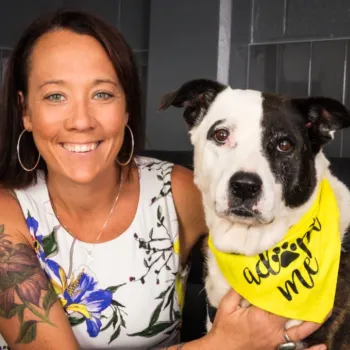

Take some time to enjoy your lunch, recharge and refuel before diving into the exciting second half of the Pre-conference Deep Dives, sponsored by Edmonton Humane Society. Lunch on April 19 is only available to Pre-conference Deep Dives attendees.
AI (Artificial Intelligence) isn’t the future — it’s already transforming how organizations that care for animals operate, make decisions, and create impact. In this full-day session, participants will explore how to use AI tools to streamline operations, improve fundraising, and make data-driven choices — all while keeping ethics, equity, and sustainability front and center. No tech background required.
Through practical examples, including AI-driven approaches to enhancing donor engagement, attendees will learn to identify repetitive tasks, automate processes, and amplify outcomes through small, strategic wins. The session also addresses responsible leadership in the AI era: building animal-inclusive frameworks, applying an EDI lens, and minimizing environmental impact. Participants will leave with actionable strategies to adopt AI confidently, responsibly, and effectively.
Key learnings
- Build a Humane and Responsible AI Foundation: Understand essential AI concepts and terminology, while learning how to evaluate AI-generated content through an ethical, equity-informed lens. Explore the balance between innovation and genuine care for all sentient beings, and learn sustainable practices to reduce AI’s environmental footprint.
- Apply AI in Practice — From Operations to Fundraising: Gain hands-on experience with tools that save time and drive results. You’ll learn to identify and automate repetitive tasks, and instantly reclaim valuable hours. Real-world examples will illustrate the tangible benefits of AI adoption such as how to optimize donor engagement and fundraising campaigns.
- Lead Organizational Change with Confidence and Curiosity: Develop strategies to integrate AI across your organization in a way that empowers teams and preserves the human touch. Learn how to build a culture of curiosity and play that makes AI adoption engaging, inclusive, and mission-aligned.


AI (Artificial Intelligence) isn’t the future — it’s already transforming how organizations that care for animals operate, make decisions, and create impact. In this full-day session, participants will explore how to use AI tools to streamline operations, improve fundraising, and make data-driven choices — all while keeping ethics, equity, and sustainability front and center. No tech background required.
Through practical examples, including AI-driven approaches to enhancing donor engagement, attendees will learn to identify repetitive tasks, automate processes, and amplify outcomes through small, strategic wins. The session also addresses responsible leadership in the AI era: building animal-inclusive frameworks, applying an EDI lens, and minimizing environmental impact. Participants will leave with actionable strategies to adopt AI confidently, responsibly, and effectively.
Key learnings
- Build a Humane and Responsible AI Foundation: Understand essential AI concepts and terminology, while learning how to evaluate AI-generated content through an ethical, equity-informed lens. Explore the balance between innovation and genuine care for all sentient beings, and learn sustainable practices to reduce AI’s environmental footprint.
- Apply AI in Practice — From Operations to Fundraising: Gain hands-on experience with tools that save time and drive results. You’ll learn to identify and automate repetitive tasks, and instantly reclaim valuable hours. Real-world examples will illustrate the tangible benefits of AI adoption such as how to optimize donor engagement and fundraising campaigns.
- Lead Organizational Change with Confidence and Curiosity: Develop strategies to integrate AI across your organization in a way that empowers teams and preserves the human touch. Learn how to build a culture of curiosity and play that makes AI adoption engaging, inclusive, and mission-aligned.


COMMUNICATIONS AND FUND DEVELOPMENT TRACK
For animal welfare organizations, strong communications, savvy public relations and effective fund development strategies are essential to building public trust, driving support, and sustaining lifesaving work. This educational track is designed specifically for nonprofits seeking to expand their resources and foster increased connections with their community.
Learn how to craft compelling stories, build relationships, align your brand to your mission, and mobilize supporters through campaigns that inspire action. Whether you're a one-person team or part of a larger organization, this track will provide practical tools, creative ideas, and proven strategies to help you raise awareness - and the funds - to strengthen your organization’s impact.
Tired of guessing your way through fundraising? Whether you're a one-person show or part of a larger team, this hands-on workshop is your one-stop shop for building smart, inspiring fundraising campaigns that actually work.
In this practical, interactive session, we'll guide you step-by-step through creating a campaign that not only catches your donors’ attention but keeps them coming back. From year-end appeals to monthly giving and emergency drives, you’ll learn how to design campaigns with a compelling brand, a clear message, and a strategy rooted in sustainability.
You’ll walk away with:
- A customizable campaign framework/strategy document that outlines the who, what, when, and how of a fundraising campaign, including campaign goals beyond revenue
- A segmentation plan template to determine who to target the campaign to
- Ideas for copywriting and design for the campaign elements
- A donor journey map tailored to your audience
- Strategies to build lasting community, not just one-time gifts
We’ll share real-life case studies and examples from nonprofits of all sizes, offering ideas and solutions you can start using right away.
Build your next campaign with clarity, creativity, and confidence—no guesswork required.
Key Learnings
- Understand the interdependencies between audience selection, messaging, design, and channel choice, and how these elements must work together to create a compelling and effective appeal.
- Actionable insights for every phase, from the initial planning (campaign strategy) and audience segmentation to crafting persuasive copy, designing impactful visuals, setting and tracking campaign goals/KPIs, and campaign timelines. Attendees will leave with a campaign strategy document template that they can use for different types of appeals, including year-end, monthly, and emergency drives.
- Learn how to build campaigns that not only achieve fundraising goals but also cultivate long-term donor relationships and trust by focusing on the donor’s journey and their role in the mission.



Take some time to enjoy your lunch, recharge and refuel before diving into the exciting second half of the Pre-conference Deep Dives, sponsored by Edmonton Humane Society. Lunch on April 19 is only available to Pre-conference Deep Dives attendees.
With more dogs and cats entering shelters each year, many animal welfare groups rely on emotionally charged marketing to drive urgency around adoptions and donations. While these tactics can be effective short-term, they often lead to burnout, desensitization, and reinforce negative perceptions of shelter animals.
Recent findings from the CivicScience Well-Being Index show rising stress and sadness among Americans—making “sad animal commercials” even harder to watch and less effective. So how can shelters inspire action without overwhelming their audience?
This interactive workshop explores how joy-driven campaigns can transform the adoption experience. Attendees will review exclusive PetPlace data on adopter mindsets, analyze real-world examples of positive marketing that increased engagement, and collaborate in small groups to share wins and misses. Participants will leave with a tactical marketing toolkit full of campaign ideas and strategies to help build stronger community connections, boost adoptions, and generate lasting support.
Key Learnings
- Positive messaging outperforms guilt-based appeals in the long term
- Understanding the modern adopter’s mindset is key to campaign success
- Tactical tools and real-world examples empower teams to act

Many organizations are in the same boat, with Meta dominating our social media and advertising strategies. What happens when audiences shift, engagement dips and costs change? The BC SPCA has been asking the same questions and experimenting with new approaches.
In this session, we'll share what happened when we tested programmatic ads, grew a TikTok presence, and even dipped our toes into Reddit by promoting our lottery, generating sought-after media attention.
Expect honest results, lessons from experience and some ideas as you think about diversifying beyond Meta.
Key Learnings:
- The risks of Meta dependence
- Learnings from testing programmatic ads
- How to approach new channels like TikTok and Reddit


When fundraising for Toronto’s first pet-friendly women’s shelter, one thing became clear: animal welfare was often the entry point that encouraged donors to give. Many were more willing to help a pet escape violence than to support a survivor, particularly if her story included poverty, substance use, racialized identity, or other realities that did not fit the “deserving victim” image.
For animal welfare professionals, this dynamic offers both potential and risk. Pets can be a powerful bridge to donor empathy but relying on them as the safer focus can reinforce respectability politics and push the human experiences at the center of the work into the background.
This session examines how these patterns appear in fundraising and marketing communications. It will look at how animal welfare campaigns can unintentionally uphold white feminist narratives that center innocence and erase complexity, and how organizations can build donor relationships that recognize the full, interconnected realities of animals and their people.
Key Learnings
- Understand why donors often see animal welfare stories as less controversial and more fundable than stories about the people connected to those animals.
- Learn ways to share complex human experiences alongside animal stories while maintaining donor trust and engagement.
- Develop messaging approaches that honour both animals and the people who care for them, avoiding narratives that use one to overshadow or erase the other.


HUMANE EDUCATION TRACK
For those looking to explore humane education in greater depth, join us for the half-day pre-conference deep dive to take a closer look at key challenges, case studies, and advanced strategies that build on the core conference content.
Humane education plays a vital role in advancing One Health/One Welfare by fostering empathy, responsibility, and compassionate action toward all living things. This educational track focuses on programs and strategies that educate learners about the interconnectedness of our relationships with living things, the importance of empathy and respect, and the role we all play in creating a more compassionate world.
Learn how humane education is used to shift attitudes, prevent cruelty and abuse, and build lifelong advocacy. From school-based initiatives to community outreach and interactive learning tools, this track offers practical insights for designing and delivering impactful education that inspires meaningful and sustainable change for a better world.
A panel of three humane focus group partners from Humane Canada’s Promising Practices Project will discuss the successes and challenges of engaging male adults as allies, utilizing the Promising Practices Framework to guide their programming.
This panel will discuss the importance of engaging male allies in ending violence, as well as how utilizing a humane education framework impacted the men in their programs. The panellists will offer brief descriptions of their programs and share their insights into how to use humane education in a variety of contexts and types of programs.
Key Learnings
- Understand the importance of engaging male allies in ending violence and strategies of engaging male voices.
- Identify how humane education can be utilized in a variety of contexts and the innovative ways humane education can be used to engage diverse audiences.
- Learn how to successfully utilize the Promising Practices Framework as well as how to address concerns and challenges that may arise.
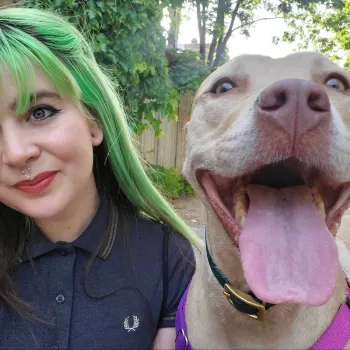


What happens when students are empowered to lead with compassion? Join Gema Chavez, Vice Principal and Grade 3 teacher at Queen of All Saints school in Coquitlam, British Columbia, together with Allison Simpson, School Program Specialist at the BC SPCA, as they share their inspiring four-year journey of building a BC SPCA Club, a student-led initiative transforming learning, community, and youth advocacy.
This interactive session will highlight how a small group of dedicated students, teachers, and community members created a meaningful and lasting impact through humane education.
Participants will explore the growth of the club, from its early beginnings to its educational initiatives, and view inspiring video interviews with students, parents, teachers, administrators, and BC SPCA staff to hear firsthand how student-led service and advocacy can strengthen school communities, transform learning environments, and inspire the next generation of compassionate leaders.
To close, engage in a Q&A session with Gema and Allison, and leave equipped with a handout and video to start you on your own club journey.
Key Learnings
- Learn practical steps to establish and sustain a school-based humane education club. Attendees will leave prepared to cultivate compassion, responsibility, and advocacy in their own humane education work.
- Learn strategies for building strong school and community partnerships founded on principles of EDRI. Attendees will be inspired to create a culture of ethical relationships and intergenerational knowledge that extends beyond the club, having a lasting impact on animals, people, and nature.
- Learn techniques for fostering long-term awareness, empathy, and ethical action among young people. This session highlights how empowering students and uplifting their voices promotes personal agency, community engagement, and life-long compassionate animal advocacy.

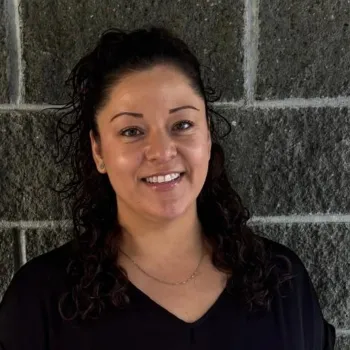
Take some time to enjoy your lunch, recharge and refuel before diving into the exciting second half of the Pre-conference Deep Dives, sponsored by Edmonton Humane Society. Lunch on April 19 is only available to Pre-conference Deep Dives attendees.
In late 2024, the Edmonton Humane Society launched two new Humane Education programs: Dog Bite Prevention and The Link (exploring the connection between violence toward people and pets), to promote safety, empathy, and a deeper understanding of how human and animal well-being are interconnected.
Throughout 2025, these programs were actively delivered in schools and community settings, reaching youth, educators, and families in meaningful ways.
By the time of this 2026 conference, we will have more than a full year of data, stories, and reflections to share. This session will highlight the impact of these initiatives, explore lessons learned along the way, and look ahead to future elevation opportunities.
Participants will also take part in interactive discussion activities, reincorporated after last year’s session, to exchange strategies and explore how humane education impacts and can be adapted to diverse audiences.
Key Learnings
- Program impact and reach – Learn about the outcomes and measurable changes from the first year of implementing new Humane Education initiatives.
- Lessons learned – Gain insights into challenges faced and unexpected successes, and how these can inform best practices in humane education programming.
- Engaging through interaction – Participate in facilitated discussion activities designed to model how humane education can foster critical thinking, empathy, and collaboration in learners.
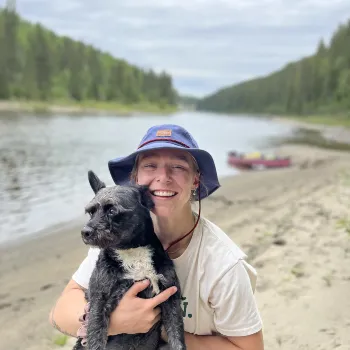
Many schools use chick hatching projects to teach young children about embryonic development. But once they have hatched, where will the chicks go? Once springtime comes many already overburdened animal shelters and rescues are the typical places where teachers will turn to drop off unwanted baby chicks. To address this growing problem, we would like to introduce a humane chick life cycle unit that you can suggest that schools use in place of live egg hatching projects. Learn how you can address this issue with your peeps!
Key Learnings
- Increase understanding of the different stages of the chicken life cycle through a variety of non-animal humane methods.
- Enhance student awareness of the natural process of chicken development without human interference.
- Enable students to appreciate chickens as unique individuals who deserve our respect, compassion, and protection.

Children are typically not very environmentally friendly. Education is often very environmentally aware. How can bridging the two benefit children and education? What benefits to our programs come from being environmentally aware, and what deficits do we struggle with when we forget to think about the environment when we are creating new programs?
In this engaging presentation, the presenter will share why it is not only worth the energy to incorporate environmentally friendly conversations, crafts, and habits into humane education, but why it is necessary.
We will look at how we can incorporate the One Health model of education into our daily routines and teachings, and how we can share the importance of looking at life from this perspective and inspire the future generations to take on the burden of protecting the earth, our animals and the generations who will continue to come after them!
This interactive conversation will include a journaling session and some time outside! Please come prepared for the experience!
Key Learnings
- Define the meanings of One Health and humane education and recognize how they intersect in our daily teachings/experiences.
- Review the options available to us and discuss the expected outcomes for different decisions we make.
- Recognize the importance of teaching from a one-health perspective.

Training for Animal Emergency Preparedness and Response
Humane Canada – National Animal Emergency Management Program
This pre-conference deep dive track focuses on building the knowledge, skills, and confidence needed to effectively prepare for, respond to, and recover from emergencies involving people and their pets. Grounded in Humane Canada’s National Animal Emergency Management Program, sessions will explore best practices in training, coordination, and capacity-building for animal welfare organizations, emergency responders, and community partners.
Participants will learn how standardized training strengthens animal emergency response across jurisdictions, improves collaboration with emergency management agencies, and enhances outcomes for animals, caregivers, and communities during disasters. Topics may include emergency preparedness planning, incident command systems, shelter design for emergency preparedness, and lessons learned from real-world deployments.
This track is designed for animal welfare professionals, emergency management personnel, municipal partners, volunteers, and leaders seeking to strengthen their organization’s readiness and ensure animals are fully integrated into emergency management planning. Sessions will emphasize practical tools, adaptable training models, and strategies for building resilient, coordinated animal emergency response networks across Canada.
Take some time to enjoy your lunch, recharge and refuel before diving into the exciting second half of the Pre-conference Deep Dives, sponsored by Edmonton Humane Society. Lunch on April 19 is only available to Pre-conference Deep Dives attendees.
PSYCHOLOGICAL HEALTH AND SAFETY TRACK
Caring for animals is profoundly meaningful work, but it also comes with emotional and psychological hazards. This educational track is dedicated to supporting the mental well-being of animal welfare professionals and volunteers who navigate the challenges of fatigue, burnout, and the daily pressures of this demanding field.
Through expert-led sessions, personal stories, and practical strategies, you’ll explore ways to cultivate a supportive and inclusive culture and foster a psychologically safe and healthy workplace.
Join this track to gain tools that not only sustain your passion for animal welfare but also promote long-term psychological health, connection, and fulfillment in both your professional and personal life.
Animal welfare organizations face unique psychological challenges due to the emotionally intense and often traumatic nature of their work. This session examines the intersection of animal welfare and human services, highlighting the mental health risks faced by shelter operations staff, animal protection officers, and rescue services.
Using the Calgary Humane Society as a case study, we’ll examine how a strategic, organization-wide wellness initiative was developed to support psychological safety across diverse roles. Participants will learn about the 13 Psychosocial Factors and their relevance in high-risk environments, including those with elevated exposure to trauma, compassion fatigue, and external threats.
This session will provide practical tools for assessing and improving workplace psychological health, with tailored strategies for both frontline staff and leadership. Attendees will leave equipped to foster resilience, retention, and well-being in their own organizations, recognizing that a one-size-fits-all approach is not enough in the complex world of animal welfare.
Key Learnings
- Gain a comprehensive understanding of the 13 psychosocial factors that influence psychological health and safety in the workplace, exploring how each can contribute to either a supportive or harmful work environment. We will also provide practical guidance on implementing a psychological health and safety management system to foster a healthier, safer, and more resilient organizational culture.
- Learn how Calgary Humane Society developed a robust wellness strategy, rooted in organizational commitment and strategic planning, to support resilience, retention, and well-being across all roles. Attendees will leave the session understanding their relevance in high-risk sectors, and walk away with practical tools to assess, evaluate, and integrate psychological health and safety practices, whether as employees or employers.
- Professionals in animal welfare, especially in enforcement roles, face elevated suicide risk due to trauma and safety threats. The Calgary Humane Society’s Animal Protection and Investigations team demonstrates how targeted wellness strategies and strong organizational support can build resilience and maintain mental health in this demanding field.


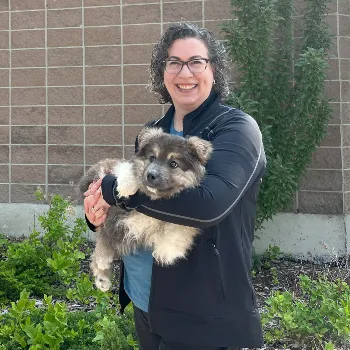
Take some time to enjoy your lunch, recharge and refuel before diving into the exciting second half of the Pre-conference Deep Dives, sponsored by Edmonton Humane Society. Lunch on April 19 is only available to Pre-conference Deep Dives attendees.
In animal well-being and advocacy, our commitment to people, pets, and causes runs deep. But sustaining that commitment requires more than passion—it requires a way to stay grounded, honest, and aligned. This session offers a compassionate framework for accountability, reframing it not as blame or burden, but as the practice that allows us to keep showing up with authenticity and intention.
We’ll move through three essential steps: Self-Awareness, which clarifies what we want, why it matters, and how we experience the world; Self-Compassion, which helps us face truth without shame, blame, or judgment and opens the door to humility; and Self-Accountability, which builds trust and strengthens our ability to navigate challenges with others.
By linking awareness and compassion to accountability, we create the foundation for resilient service. This mindful approach helps us face conflict, stress, and setbacks without losing ourselves. Participants will leave with practical tools and steps for cultivating accountability as a compassionate practice—supporting their ability to serve with clarity, courage, and compassion.
Key Learnings
- Understanding how self-compassion practices unlock greater accountability
- Applying accountability as a tool to strengthen trust and relationships with others
- Identifying ways to align self-awareness, compassion, and accountability to show up with authenticity and resilience

In many animal organizations, leadership is treated as a title rather than an active practice. Managers step in to “do the work,” or wait for direction instead of setting it. The result is a culture of passive leadership, decision bottlenecks, underutilized and frustrated volunteers, and staff burnout. To save more lives, animal organizations need a culture of active leadership: leaders at every level who set direction, coach their teams, and drive progress forward.
This session will share practical strategies for shifting from passive to active leadership, drawing on Rory Adams’ first year as a director at Austin Pets Alive! . Attendees will learn how to set direction rather than wait for it, move from “doing” to “leading,” and empower staff and volunteers to lead themselves. Importantly, Rory will also highlight how failures and missteps informed leadership growth—showing that active leadership is not about perfection, but about learning, adjusting, and leading transparently. Central to this shift is building psychological safety, so staff and volunteers feel supported to take risks, speak up, and grow into leaders themselves.
Key Learnings
- Identify the difference between passive and active leadership.
- A framework for coaching, accountability, and psychological safety.
- Gain tools to build a culture where staff and volunteers lead confidently at every level.

SHELTER AND COMMUNITY MEDICINE TRACK // SPONSORED BY THE CANADIAN ANIMAL SHELTER AND COMMUNITY MEDICINE ASSOCIATION (CASCMA)
RACE Approval Pending
As shelters continue to navigate through rising veterinary costs and staffing shortages, their role as the first line of support for animals awaiting adoption has never been more vital. But what if we could prevent some of these animals from ever needing to enter the shelter system in the first place?
Join us for a series of deep dive sessions exploring access to care. We’ll examine how shelter teams, shelter veterinarians, and local veterinarians can assist animals before they enter the shelter, while they’re under shelter care, and after they’ve been adopted.
Increasing numbers of animals are being surrendered to shelters for medical reasons due to rising costs of veterinary care. Bladder stones and intestinal foreign bodies are common reasons for medical surrender as they are often time-sensitive, life-threatening, and require costly surgeries to treat. Being able to confidently perform cystotomies and various gastrointestinal foreign body surgeries (gastrotomy, enterotomy, resection and anastomosis) can improve outcomes for shelter animals and prevent surrenders and economic euthanasia.
In this session, we will share tips and tricks for safely and efficiently performing these surgeries, including perioperative considerations and specific surgical techniques. We will address how to utilize technicians to maximize efficiency. We will also discuss considerations when offering these surgeries through an outpatient community clinic, specifically covering case selection, logistics, and client communication.
This session is aimed at veterinarians and technicians who want to begin performing these surgeries, those who already do and want to improve efficiency, and those who perform these surgeries in the shelter but are considering opening this service up to the public.
Key learnings
- Learn how to safely and efficiently perform cystotomies and GI foreign body surgery.
- Learn how to maximize efficiency by utilizing technicians and standardized processes throughout the surgical process.
- Learn how to begin offering cystotomies and GI foreign body surgery through an outpatient community clinic.
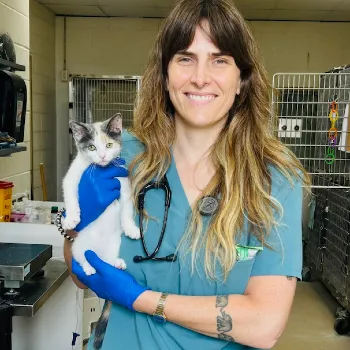

Take some time to enjoy your lunch, recharge and refuel before diving into the exciting second half of the Pre-conference Deep Dives, sponsored by Edmonton Humane Society. Lunch on April 19 is only available to Pre-conference Deep Dives attendees.
Telemedicine is a controversial topic in veterinary medicine in North America. Is it an incredible tool, or a risk to animals and the veterinary profession? Can it be used safely? Are there any benefits to animals and caregivers, including animal shelters?
In several Canadian provinces, veterinarians can establish a Veterinarian-Client-Patient Relationship (VCPR) by telemedicine. This enables assessment and treatment to start before a veterinarian does a hands-on exam. For some medical and behavioural conditions, this is helpful and improves patient welfare and staff/ caregiver safety. However, there are also conditions where telemedicine is not appropriate and can lead to delays in necessary care.
This session features panelists and a moderator who are highly experienced providing telemedicine services to shelter and/or owned animals across several Canadian provinces. The lively discussion will cover the current regulatory landscape, clinical decision-making, and real-life challenges and benefits.
Key Learnings
- Describe the current regulatory landscape for the use of telemedicine in shelter and owned animals in Canada.
- Summarize concerns from veterinary leaders and the public as well as risks to individual and population animal health associated with the use of telemedicine.
- Identify cases and scenarios where telemedicine can be used safely to benefit animal health and welfare and staff safety, including both individual and population considerations.




The results of an ASPCA research grant funded study of a novel low-cost fracture repair method will be presented. Fractures in pets are common, often requiring expensive surgeries. Often this leads to sub-optimal treatment, shelter relinquishment, or economic euthanasia.
Paraosseous clamp cerclage stabilization (PCCS) is an inexpensive surgery method, originated in 2001, using generic, affordable pins and minimal instrumentation. While virtually unknown in North American veterinary practice, PCCS has become a favored technique for companion animal fracture repair in the developing world where resources are always scarce.
The Idaho Humane Society was awarded an ASPCA research grant in 2025 to conduct a prospective study of a modification of the PCCS technique in dogs and cats with tibia and femur fractures. Complication rates were comparable to conventional, more expensive fracture repair methods. In addition to follow-up clinical examinations, radiographs of all cases were submitted for assessment of fracture healing by a boarded veterinary radiologist. The results of the study show that PCCS is an effective and affordable surgical fracture repair method for many commonly encountered long bone fractures in dogs and cats.
Key Learnings
- A brief review of fracture biology and healing will be presented.
- Participants will be provided the evidence for PCCS as an affordable fracture repair method based on the presenter's study, case examples, and review of existing literature.
- Attendees will learn the basic application methods and will be able to apply this method in their own practices.

Sponsored by Veterinov
Join fellow attendees for a casual and welcoming networking social at the stunning Woodlands Terrace at the Fairmont Chateau Whistler. This heated outdoor space offers beautiful mountain views and the perfect atmosphere to ease into the Summit.
The Yappy Hour is a relaxed opportunity to meet new people, reconnect with familiar faces, and start the Summit for Animals 2026 with great conversations in a beautiful setting.
We can’t wait to see you there!
Complimentary for all attendees. No advance sign up required.
Start your conference day with a refreshing 4 km (2.5-mile) walk around Whistler’s beautiful Lost Lake. Hosted by Lindsay from Whistler Animals Galore (WAG) and Birken Dogs and joined by a few friendly dogs, this casual morning walk is the perfect way to get moving, connect with fellow attendees, and enjoy the peaceful surroundings.
Attendees are also welcome to bring their own dogs along. All fitness levels welcome!
Meeting point - Lost Lake PassivHaus, 7400 Fitzsimmons Rd S, Whistler, BC V8E 1N3 (7-minute walk from the Fairmont Chateau Whistler). See walking directions here.
Complimentary for all conference attendees. No sign-up required.
Kick off the Summit for Animals with our opening welcome remarks. Hear a warm welcome from the Humane Canada team and special guests to set the tone for the day ahead!
Over the past three decades, animal welfare has undergone profound change—from a largely animal intake and enforcement-centric model to a more collaborative, guardian-supportive approach with an increased emphasis on prevention and addressing the root causes of animal suffering. This evolution reflects several systemic shifts, including a greater recognition of the human-animal bond; heightened public awareness of the work in the field; an increasing reliance on a science-based approach to animal welfare; and the growing realization that the animal shelter is simply a microcosm of what is occurring daily in the community.
This session will reflect on the successes and challenges that have shaped animal welfare over the past three decades, while confronting the realities that continue to hinder progress in the sector. It will explore the urgent need for deeper collaboration across organizations and disciplines, and examine the persistent tension of working in a field where demand consistently outpaces available resources. The changing role of government in the animal care field will also be discussed, to equip our sector to position itself to thrive in the future.
Participants will gain insight into the opportunities that arise from these challenges and consider what it will take to build a more resilient, innovative, and sustainable future for animal welfare.

Discover. Connect. Refuel — All in the 2026 Discovery Hub
The Discovery Hub is your central stop for connection and collaboration at the Summit for Animals. Meet with exhibitors who are here to support you, the professionals and changemakers driving progress in animal welfare every day.
Explore a wide range of products, services, and tools designed to enhance your work and advance your mission. All exhibitors are located together in one convenient space, making it easy to navigate and engage.
Enjoy all-day coffee served right in the Hub. Plus, many exhibitors are offering giveaways and prizes you won’t want to miss.
Open both Summit days (April 20-21). Check the schedule and make the most of this space created for you.
Bring a little something from your organization and trade it for treasures from others! The Swag Swap is a fun way to share, collect, and discover unique items from across the animal welfare community. Swap, mingle, and take home a piece of the Summit for Animals spirit!
Sponsored by the Calgary Humane Society
Take a moment to pause and recharge in the Happy Walrus Recharge Room. This quiet space provides a calm environment with fidget toys, tables, and comfortable spots to relax, reflect, or recharge your energy between sessions.
New to the Summit? Stop by the First Time Attendee Hangout, a relaxed and welcoming space created just for first time participants. Drop in anytime during the conference to meet fellow newcomers, take a break, or get oriented. No schedule, no sign up.
In many Northern and remote Indigenous communities, the relationship between people and their dogs is deeply ingrained in daily life, culture, and history. These are not just stories about animals — they are stories about family, responsibility, tradition, and survival in the face of unique challenges.
Rather than speaking on behalf of these communities, this session invites you to hear directly from Indigenous voices who live with the reality of dog overpopulation and care for dogs in the North. Through personal storytelling, they will share their bonds with their pets, the struggles of limited access to veterinary care, and the innovative, community-led solutions they are building.
This is not a lecture — it is a circle of listening. By bringing together northern perspectives and southern audiences, our presenters hope to foster understanding, respect, and collaboration in addressing dog overpopulation in a way that honours both the animals and the people who care for them.
Key Learnings
- Learn the realities of dog overpopulation in First Nations and how only communities can lead the solutions.
- How to approach Indigenous relationships and collaborations.
- How colonization has impacted rez dogs, their families, and community health.
Final Speaker Coming Soon.

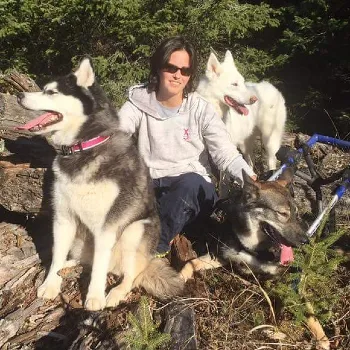


This session will describe farm animal welfare governance in Canada, and present two recent research projects completed by the University of British Columbia's Animal Welfare Program.
The first project explores the concept of ‘legitimacy’ and uses this concept to examine public-facing documents about the National Farm Animal Care Council (NFACC) Codes of Practice.
The second project explores western Canadian dairy farmer acceptance of the NFACC Codes, in particular their views about a new requirement to socially house dairy calves.
Attendees will have opportunities to ask questions and engage in interactive activities.
Key Learnings
- Broad overview of how farm animal welfare is governed in Canada
- Define the concept of legitimacy, and identify different perspectives on legitimacy
- Case study: Recognize public and farmer perspective on dairy cattle welfare governance through the National Farm Animal Care Council’s Code of Practice for the Care and Handling of Dairy Cattle

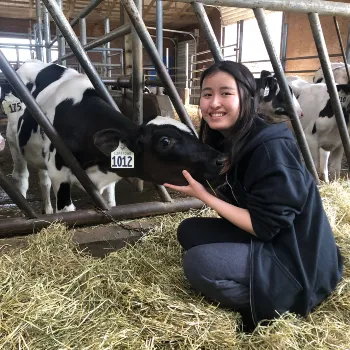

Where are you from? Where are your students from? What about your co-workers? Do we all see animals the same way? Are they always pets? Are they members of the family, or maybe they’re part of the family’s workforce? Are pets always seen and appreciated in different cultures? If we’re from the same area, do we have the same culture?
In this eye-opening talk, Nabila will take the audience through some obvious and some not so obvious questions that we as educators should be asking ourselves, our co-workers, and our students. With the goal of being more informed about not only our students and their needs but also being aware of cultural practices and beliefs that can and do affect how our teachings come across.
We will discuss things to be aware of, mistakes that we can learn from, and what to do when we are unsure.
Key Learnings
- Recognize that the multitude of cultures that our students come from can and do impact the way our students understand our teachings.
- Discuss the different ways that some cultures view/use/interact with animals in their lives.
- Recognize that educating ourselves on other people and their cultures makes us better educators for our team members, our students, and our own personal and familial cultures.

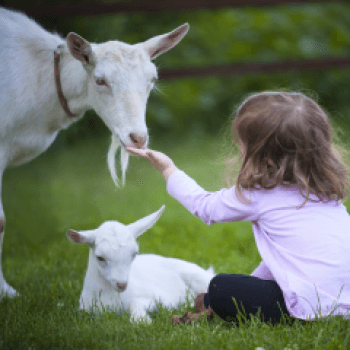
Infectious disease outbreaks in animal shelters require rapid, efficient decision-making, and negative outcomes can have devastating consequences for both the shelter and the community. This interactive workshop gives participants the opportunity to navigate outbreak cases with guidance from shelter medicine specialists.
Working in small groups, attendees will manage two to three mock outbreak scenarios, while receiving incremental updates such as new cases, lab results, and evolving circumstances. Scenarios are modeled after commonly encountered shelter diseases and will simulate the complexity of real-world conditions.
Throughout the session, facilitators will deliver short presentations on important topics including disease recognition, diagnostics, treatment, risk assessment, population management, biosecurity, and sanitation. Guided by a spectrum-of-care approach, participants will learn to distinguish “essential” and “non-essential” interventions, and balance best practices with common shelter resource limitations. This session will allow participants to apply these general concepts to their own shelter settings, to allow for more confident decision-making during an outbreak scenario.
Key Learnings
- Perform key steps of outbreak investigation and management, including risk assessment and planning for population management, biosecurity, and sanitation.
- Respond to new information during an outbreak, including making decisions about public communication and how to wrap up an outbreak response.
- Incorporate consideration of resource limitations and what steps are “essential” and “non-essential” during an outbreak based on organizational factors.

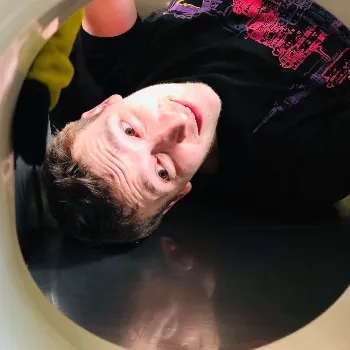


Join Lindsay Baker, Senior Director of Volunteer Resources, to hear about the BC SPCA's two-year journey to transform their foster program. Discover how they crafted a more rewarding experience for current fosters, modified their engagement practices for the post-pandemic volunteer landscape, and developed a strategy to grow their foster team over the next 5 years.
Learn how the Volunteer Resources team advocated for strategic investment in foster program improvements and secured the resources to hire an external volunteer engagement consultant. Discover foster program best practices from across the globe and the key recommendations made to align their foster program with current trends in volunteerism.
You’ll also experience some of the new pre-application tools created to help candidates understand the realities of fostering and see samples of the job aids developed to support staff and volunteer leads responsible for foster coordination. Finally, find out the results from the pilot phase of their new, streamlined foster onboarding process.
Benefit from the BC SPCA’s experience by hearing about both their successes and lessons learned and leave with ideas and inspiration for your own foster program enhancement.
Key Learnings
- This session will share the BC SPCA's journey over the past 2 years to improve the experience of their fosters and to grow their foster program. Attendees will hear about their approach to this project - its successes and the lessons learned - and gain inspiration for their own foster program enhancements.
- Participants will gain insights into foster program best practices worldwide through our research and consultation phase. They’ll also learn the consultant's recommendations to help the BC SPCA align with current trends in volunteerism following the pandemic.
- Attendees will also experience some of the new communication tools developed to help community members understand the realities of fostering before applying and see examples of job aids designed to support staff coordinating the foster program.


This presentation highlights practical, compassionate surrender prevention strategies, focusing on “meeting people where they are” initiatives that help pet owners in urban and rural communities facing homelessness, barriers to pet care, or other crises.
Bianca will share Urban Tails’ Street Support program, from early research and planning to direct, on-the-ground delivery. The program provides free pet food, supplies, and immediate resources to support companion animal care.
The session will also explore how to host community wellness pop-up events that bring preventative veterinary services, along with other pet wellness support, directly into neighbourhoods with limited access to care.
Collaboration is crucial to the success of these programs. Working with local veterinary clinics, pet care businesses, housing outreach teams, Indigenous support organizations, and harm reduction and mental health services ensures both people and pets receive complete, holistic care.
Through real-world examples and impact data, attendees will discover how proactive, community-based programs keep pets with their families, reduce shelter intake, and promote compassion, equity, and access to care.
Key Learnings
- Implementing Compassionate Community Programs: Gain practical tools for launching or enhancing community-focused pet support programs.
- Preventing Surrenders at the Source: Identify practical community outreach strategies to keep pets with their families and out of shelters.
- Cross-Sector Collaboration: Learn how to build and sustain effective partnerships with housing providers, homeless shelters, health and harm-reduction organizations, local veterinary service providers, and pet care businesses to support pets and people together.


In this workshop, participants will have the opportunity to build a farm animal welfare governance system that acknowledges diverse viewpoints and uses core components of governance systems. Participants will first share their own views about what farm animal welfare governance should include and then take the perspective of an individual typically involved in farm animal welfare governance (e.g., farmers, animals). Then, participants will work in small groups to discuss key components of governance systems, including 1) the actors involved in developing governance, 2) the processes of governance systems, and 3) the governance system’s goals. At the conclusion of the workshop, groups will share their discussions and identify key components for building an inclusive governance system.
Key Learnings
- Define core components of governance systems.
- Conceptualize a governance system from the perspective of an actor that may have a different perspective than yourself.
- Collaborate with others to build a governance system that is inclusive of diverse perspectives.



This presentation explores "Promising Practices" for engaging communities in the prevention of gender-based violence, with a specific focus on Indigenous-led and community-driven approaches.
Rooted in traditional teachings, cultural knowledge, and community-based approaches, these practices recognize the critical role that young boys and men play in building safer and more respectful communities. The session will highlight three key areas: incorporation of cultural teachings that promote respect and responsibility in relationships, creating safe spaces for boys and men to engage in dialogue, and strengthening intergenerational connections that empower all community members to carry forward community values of care and protection for healthy, safe communities.
Key Learnings
- Incorporation of cultural teachings that promote respect and responsibility in relationships
- Creating safe spaces for boys and men to engage in dialogue
- Strengthening intergenerational connections that empower all community members to carry forward values of care and protection for healthy, safe communities


Infectious disease outbreaks in animal shelters require rapid, efficient decision-making, and negative outcomes can have devastating consequences for both the shelter and the community. This interactive workshop gives participants the opportunity to navigate outbreak cases with guidance from shelter medicine specialists.
Working in small groups, attendees will manage two to three mock outbreak scenarios, while receiving incremental updates such as new cases, lab results, and evolving circumstances. Scenarios are modeled after commonly encountered shelter diseases and will simulate the complexity of real-world conditions.
Throughout the session, facilitators will deliver short presentations on important topics including disease recognition, diagnostics, treatment, risk assessment, population management, biosecurity, and sanitation. Guided by a spectrum-of-care approach, participants will learn to distinguish “essential” and “non-essential” interventions, and balance best practices with common shelter resource limitations. This session will allow participants to apply these general concepts to their own shelter settings, to allow for more confident decision-making during an outbreak scenario.
Key Learnings
- Perform key steps of outbreak investigation and management, including risk assessment and planning for population management, biosecurity, and sanitation.
- Respond to new information during an outbreak, including making decisions about public communication and how to wrap up an outbreak response.
- Incorporate consideration of resource limitations and what steps are “essential” and “non-essential” during an outbreak based on organizational factors.




At Muttville, volunteers make it happen. We have more than 500 active volunteers who take part in nearly every aspect of the organization. They walk, feed the dogs, and clean their kennels. They do laundry and help at the vet clinic. They work the front desk and answer emails. They write the dog bios on our website, help with grant writing, and design marketing collateral. By thinking creatively and tapping into our volunteers’ full range of talents, we’ve grown our impact without expanding our payroll.
In this presentation, we’ll explore surprising and often-overlooked ways to integrate volunteers into the heart of your operations. There are countless ways passionate people can support your mission, even if they’ve never walked a dog before.
We’ll help you identify areas of your organization that could benefit from volunteer support, assess roles for accessibility and sustainability, and share strategies for recruiting, onboarding, and retaining skilled volunteers in non-traditional roles. You’ll also learn how this approach boosts engagement, builds capacity, and brings fresh energy and expertise to your team.
Key Learnings
- How to identify and create nontraditional volunteer roles based on your organization’s needs, thinking about where your organization is spending the most amount of time and start there!
- How to recruit and train volunteers for roles in marketing, admin, tech, fundraising, and more (some of these roles can be remote, so you can expand your reach beyond your immediate community)
- How expanding volunteer opportunities can strengthen internal systems and reduce burnout among staff


Discover. Connect. Refuel — All in the 2026 Discovery Hub
The Discovery Hub is your central stop for connection and collaboration at the Summit for Animals. Meet with exhibitors who are here to support you, the professionals and changemakers driving progress in animal welfare every day.
Explore a wide range of products, services, and tools designed to enhance your work and advance your mission. All exhibitors are located together in one convenient space, making it easy to navigate and engage.
Enjoy all-day coffee served right in the Hub. Plus, many exhibitors are offering giveaways and prizes you won’t want to miss.
Open both Summit days (April 20-21). Check the schedule and make the most of this space created for you.
This collaborative session brings together presenters from municipal animal shelters, enforcement, and outreach teams to share practical strategies for strengthening both human and animal welfare through community-centred approaches.
Drawing on diverse experiences from Surrey, BC, and beyond, speakers will highlight how partnerships with bylaws, animal services, police, and organizations with existing programming can amplify impact—especially in municipal shelters, which face unique challenges compared to nonprofit or privately run facilities. Through real-world examples and actionable tips, attendees will learn how small, coordinated steps and resource-sharing can lead to meaningful change. Whether you're looking to build cross-sector relationships, gain leadership buy-in, or simply do more with what you already have, this session offers insights and inspiration for making a difference in your community.
Key Learnings
- Understand how to shift toward a community outreach or “One Health” model by leveraging existing resources and partnerships to support both human and animal welfare.
- Explore strategies for cross-sector collaboration, including working with bylaw enforcement, animal services, police, and external organizations with established programs.
- Identify small, practical steps to coordinate efforts and amplify impact using the strengths and tools already available within your organization or community.
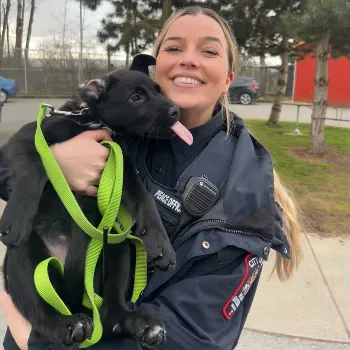



While some consumers do not consider their food's origins, a growing number who investigate are disappointed to discover that standard practices on Canadian farms do not meet their expectations for animal welfare, and there is a lack of independent oversight.
What are those consumers supposed to do? If they do not want to go vegan, is there still a way to consume in alignment with their values?
For consumers seeking alternatives without going vegan, independent certifications like the Canadian Organic Standards appear promising. But do they deliver on animal welfare? Do they consist of science-based animal welfare standards, or is the focus on reducing pesticides and chemicals? Who makes and inspects the standards? Have judicious consumers found the solution to their animal welfare concerns?
This session will review how the Canadian Organic Standards are developed—who is involved, how decisions are made, and how they are implemented. It will also consider how the Canadian Organic Standards compare to Canada’s minimum standards for farmed animals and whether there are better pathways for values-aligned consumption.
Key learnings
- Trends in consumer eating behaviour.
- How the Canadian Organic Standards are developed and implemented – from someone who has been on the development committee.
- How conscious consumers can make food choices in alignment with their values (whether you are looking for guidance for yourself or to provide to your organization’s supporters).
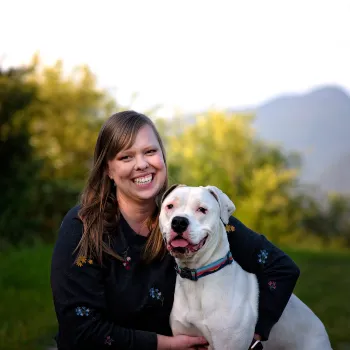

Our three Humane Education panellists join you from across Canada to answer the big question: Why Humane Education?
Drawing on their firsthand experiences, they’ll share how their programs are designed, revitalized, and adapted to meet the unique needs of diverse communities. They’ll also tackle the common challenges every Humane Education team faces; from limited resources and capacity constraints to demonstrating meaningful impact. By the end of this session, you’ll leave with practical strategies, fresh inspiration, and a clear understanding of why prioritizing Humane Education is essential for fostering compassion and empathy in communities across the country.
Key Learnings:
- Why humane education programming/infrastructure should be prioritized
- Learn about how to start, revamp, or revolutionize your humane education practices.
- Addressing and overcoming typical challenges in humane education



Kittens entering shelters are often fostered by volunteers who play a vital role in shaping behaviour, adaptability to new homes, and adoption success, yet many caregivers receive limited or inconsistent guidance on socialization. In a mixed methods study, 487 foster caregivers shared perspectives on the guidelines they received and which aspects they found most important or challenging for kitten welfare and adoption outcomes. Respondents were primarily from the US (69%) and Canada (19%); only half (n=245) reported receiving socialization-specific guidelines. Thematic content analysis and multiple correspondence analysis revealed that practices viewed as important included socialization strategies, caregiver empowerment, structured support, and adoption timing, with rationales tied to kitten readiness and adopter support. Challenges included restrictive shelter practices and communication barriers, linked to policy constraints and knowledge gaps. Findings highlight the need for comprehensive guidelines and adequate caregiver support. By refining processes, strengthening education, and reducing barriers, shelters can enhance foster caregiver experience and retention and adoption outcomes.
Key learnings
- Understand current gaps in kitten foster caregiver guidance by examining how shelters can improve socialization-specific guidelines.
- Identify which aspects of foster guidelines matter most to caregivers for supporting kitten welfare and successful adoptions.
- Explore practical strategies for shelters to strengthen caregiver support, education, and communication to improve adoption outcomes.


Effective communication with pet owners is critical to promoting animal welfare and pet retention, yet it can be challenging when human behaviour change is needed. This session introduces the Stages of Change model and Motivational Interviewing (MI) as practical frameworks for helping organizations to engage pet owners in sustainable decisions that keep pets safely and successfully in their homes.
Attendees will learn how to recognize readiness for change, ask open-ended questions, use reflective listening, and guide conversations without judgment. By applying these tools, animal welfare professionals will be able to build trust, improve program outcomes, and further organizational goals, such as keeping pets and families together.
Key Learnings
- Understand the Stages of Change to identify where pet owners are in their readiness to act.
- Use Motivational Interviewing techniques to engage, support, and empower owners.
- Apply practical communication strategies to encourage lasting behaviour change and improve pet welfare outcomes.


This presentation critically examines the inherent strengths and weaknesses of Canada’s current farmed animal protection framework by asking: how can we do better?
Drawing inspiration from international advancements, this session will highlight progressive legislative frameworks, democratic initiatives, innovative policies, and successful industry shifts in other jurisdictions that have demonstrably improved farmed animal welfare. By showcasing these global blueprints—from robust legal protections to incentive-based programs for higher-welfare farming—we will demonstrate viable pathways for Canada to transcend current limitations.
Key Learnings
- Canada’s current federal farmed animal protection framework and what its strengths and weaknesses are.
- International examples offer proven models for improvements to farmed animal welfare systems.
- Viable, evidence-based pathways exist for Canada to improve farmed animal welfare.



This presentation examines how realistic children's literature catalyzes tangible animal welfare outcomes beyond the classroom. Drawing on years of experience from The Gryphon Press and Lakes Animal Friendship Society, we will explore:
Shelter Integration: How humane education picture books function as foundational tools supporting spay/neuter initiatives, anti-cruelty programs, and wildlife conservation efforts within animal welfare organizations.
Campaign Applications: Examples of how Animal Advocacy organizations use humane literature to amplify messaging.
Educational and Community Activation: How humane literature serves as a springboard for student-led projects and community actions, such as students building dog houses, creating warming blankets, and establishing community cat care programs.
Cross-cultural effectiveness: How translations of titles into Chinese, Spanish, and Indigenous dialects of British Columbia have helped to establish foundational animal welfare programs in other countries and communities.
Key Learnings
- Participants will discover how story-driven humane education motivates children and communities to take concrete actions for animals, from building dog houses to direct animal welfare interventions.
- Participants will discover practical frameworks for integrating humane education literature into diverse settings—from shelter programs and educational curricula to national advocacy campaigns and professional development training—with documented methods for maximizing impact.
- Participants will see evidence of how humane education literature successfully translates across languages and cultures, creating foundation-sponsored programs and community initiatives worldwide.
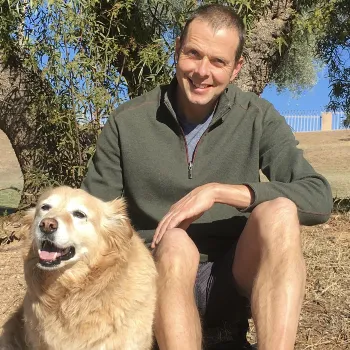


Volunteers bring energy, skills, and passion that can take an organization’s work to the next level. But great volunteer programs don’t just happen; they thrive when staff know how to work alongside volunteers in a way that’s respectful, clear, and supportive.
The presentation will examine why training staff to work with volunteers is crucial and how it can significantly impact keeping volunteers happy and engaged. Our speakers will discuss the value volunteers bring, some of the common bumps in the road when staff and volunteers aren’t on the same page, and how training can prevent misunderstandings, improve communication, and build stronger teams.
Key Learnings
- Positive Staff-Volunteer Relationships Drive Volunteer Success
- Positive Staff-Volunteer Relationships Drive Volunteer Success
- Effective Volunteer Collaboration Requires Ongoing Development



This panel presentation will spotlight the role of pets in Canada’s housing crisis. Pets are framed as liabilities within rental and housing markets, leaving families forced to choose between secure housing and the companions they consider family. Our goal is to catalyze a shift in perspective—urging policymakers, housing providers, and the public to view pets as an integral part of families, worthy of recognition in humane housing policies and legal frameworks.
The panel will move beyond a narrow legal or housing discussion to position the issue as a true multisector challenge. It intersects with mental health—given the documented benefits of pets for emotional well-being—social equity—since pet-related housing restrictions disproportionately impact low-income renters and marginalized groups—and animal welfare, as housing barriers can lead to surrender or abandonment. Current law and policy in Canada remain fragmented and heavily market-driven, exacerbating the social suffering of multi-species families. By taking a national view, the panel will explore how more coordinated and compassionate approaches could ease the crisis, emphasizing the urgent need to embed the human–animal bond within housing justice solutions.
Key Learnings
- Pets as Property Creates Systemic Harm - Canadian law still classifies companion animals as property, restricting tenants’ rights and ignoring the lived realities of multispecies families. This outdated legal framework means that families can be forced to surrender their pets, hide them, or face eviction, highlighting a significant gap between social values (regarding pets as family) and legal treatment (regarding pets as objects). Pets are family to most Canadians, but our laws do not account for this. Advocates urge provinces to update their laws and policies to ensure pets are no longer treated as bare property, and that housing rules better reflect how families actually live with their companion animals in multi species households.
- Housing Policy is a Patchwork that Drives Inequity. Ontario’s “no-pet void” clause offers a degree of protection, but elsewhere, landlords can still impose blanket bans, size restrictions, or high pet fees. Even in Ontario, covert discrimination persists. Quebec is moving toward reform, but across Canada, inconsistency in protections has left many renters—especially low-income households, seniors, and survivors of violence—facing a disproportionate housing burden because of their pets.
- Housing Restrictions Carry Real Human and Animal Costs Pet bans are not just an inconvenience: they cause family disruption, worsen mental health, increase shelter surrenders, and sometimes push people into homelessness. For shelters and SPCAs, this means intake spikes tied to housing shortages. For renters, it means being forced to choose between shelter and their pet. Recognizing these harms underscores housing policy as an animal welfare issue and a public health issue.

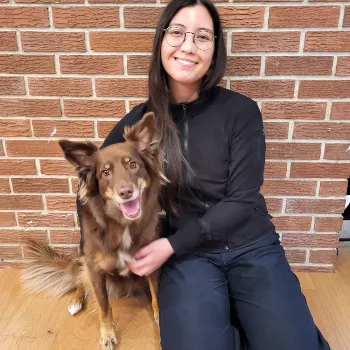



The BC SPCA is excited to welcome you to "the" place to après, Whistler's iconic Garibaldi Lift Co., home to panoramic views, music, good times and tall tales. Start planning your Eighties costume now, neon, acid-wash and big hair not just encouraged, but expected!
- Evening highlights
- Delicious craft bites with a comfort food vibe
- A complimentary drink, alcoholic and non-alcoholic options available
- Live music
- Costume contest
We look forward to a fun-filled night to get the Summit off to a fabulous start!
Space is limited, buy your ticket early.
Start your conference day with a refreshing 4 km (2.5-mile) walk around Whistler’s beautiful Lost Lake. Hosted by Lindsay from Whistler Animals Galore (WAG) and Birken Dogs and joined by a few friendly dogs, this casual morning walk is the perfect way to get moving, connect with fellow attendees, and enjoy the peaceful surroundings.
Attendees are also welcome to bring their own dogs along. All fitness levels welcome!
Meeting point - Lost Lake PassivHaus, 7400 Fitzsimmons Rd S, Whistler, BC V8E 1N3 (7-minute walk from the Fairmont Chateau Whistler). See walking directions here.
Complimentary for all conference attendees. No sign-up required.
Sponsored by the Calgary Humane Society.
Take a moment to pause and recharge in the Happy Walrus Recharge Room. This quiet space provides a calm environment with fidget toys, tables, and comfortable spots to relax, reflect, or recharge your energy between sessions.
New to the Summit? Stop by the First Time Attendee Hangout, a relaxed and welcoming space created just for first time participants. Drop in anytime during the conference to meet fellow newcomers, take a break, or get oriented. No schedule, no sign up.
Rabbits are one of the most frequently overlooked species in animal shelters, particularly when it comes to housing and environmental needs. This session introduces the Association of Shelter Veterinarians (ASV) Guidelines for Humane Rabbit Housing in Animal Shelters - the first document of its kind in North America to offer comprehensive, species-specific recommendations for rabbits in shelter settings.
The session will highlight key recommendations, the evidence behind them, and practical strategies for implementation in a range of shelter environments. These guidelines are intended to offer the same kind of practical value as the ASV’s widely used Standards of Care and Spay/Neuter Guidelines—supporting shelters in providing thoughtful, humane care for all animals, including rabbits.
Key Learnings
- Describe the unique characteristics and needs of domestic rabbits in shelter settings.
- Identify crucial elements of primary enclosure design for shelter rabbits, including minimum dimensions, materials, and setup.
- Summarize recommendations for shelter rabbit care beyond the primary enclosure, including those for facility design, population management, cohousing, sanitation, and basic infectious disease considerations.
More speakers coming soon.
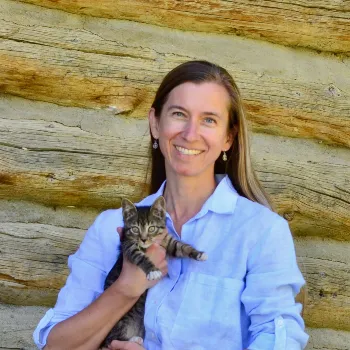

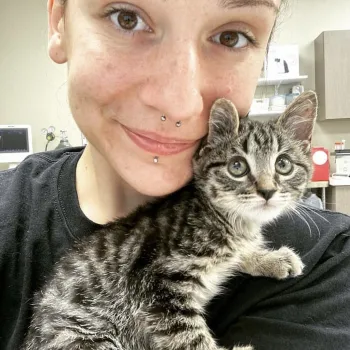

At the Edmonton Humane Society (EHS), we know we’re more than an animal shelter; we’re a community resource. Our programs extend beyond caring for animals to supporting the people who love them.
In this session, we’ll explore how strategic communications and fund development work together to expand our impact, inspire donor confidence, and build lasting connections.
Discover how aligning storytelling, community engagement, and fundraising can lead to real, measurable change for both people and pets.
Attendees will gain practical insights from real-life EHS scenarios, including lottery campaigns, direct mailers, community event initiatives and other outreach efforts—highlighting both successes and lessons learned along the way.
Key Learnings
- Understand the unique roles of Fund Development and Communications, and how their collaboration can amplify impact and drive meaningful results.
- Learn strategies for integrating communications and fundraising plans to create cohesive, goal-driven campaigns.
- Learn strategies for integrating communications and fundraising plans to create cohesive, goal-driven campaigns.



In remote and under-served communities, animal welfare work faces unique and persistent challenges: long distances to veterinary care, a shortage of skilled personnel and volunteers, overwhelming demand, limited funding, and inconsistent community engagement. Yet, within these constraints, powerful stories of resilience and transformation emerge.
This panel explores how human connection—across cultures, organizations, and species—can drive compassionate and sustainable animal welfare. Through diverse perspectives from the Canine Action Project (CAP), Canadian Animal Assistance Team (CAAT), and Indigenous community members, we’ll examine how listening, learning, and reflecting can turn good intentions into meaningful impact. You will hear stories of true impact from the organizations that provide support to their Indigenous community partners AND from the Indigenous community partners themselves. We invite you to participate in an open and multi-faceted discussion on the development of community-based animal welfare initiatives that are responsive to local contexts and empower individuals to support the animals in their community.
Key Learnings
- Intent Isn’t Impact: Good intentions alone don’t guarantee meaningful outcomes. Real change demands humility, deep listening, and a commitment to understanding. Progress begins when we listen, learn, and reflect.
- Adapt to Advance: In environments where resources are stretched and needs are urgent, adaptability isn’t optional—it’s a survival skill. Flexibility in approach and mindset is key to sustaining compassionate care.
- Connection is the Catalyst: Change happens through relationships. Human-to-human connection builds trust and collaboration, while human-animal connection fosters empathy and purpose. Both are essential to move forward together.



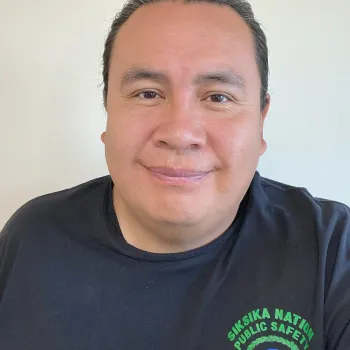

This session will illuminate the value of an animal welfare perspective for addressing the drivers of environmental challenges and sustainable development.
It will highlight some of the important links between animal welfare and biodiversity, climate change, pollution, health, food security, and livelihoods. This will draw on examples from the expanding scientific evidence base on how improving animal welfare, for all animals, can better people’s lives and the environment. It will present ways in which we can conceive of animal welfare within wider concepts of health and sustainable development.
It will also identify key opportunities in which international policymaking can consider animals - even within anthropocentric objectives - using examples from recent years such as the UNEA Resolution 5/1, and Pandemic Agreement, and illustrate how we as the animal welfare movement can support this progress to get animal welfare mainstreamed within global agendas.
Key Learnings
- An understanding of key relationships between animal welfare and concerns for human and environmental health
- An understanding of how dominant global agendas might be shifted to include animal welfare concerns as mainstream objectives.
- An understanding of how we can support this development through global advocacy, coordination and allyship.


Veterinary medicine is experiencing a division between “ivory tower” and “shelter medicine”. This often forces practitioners to choose a side. But maybe it’s possible to bridge the gap with a high-quality, low-cost design. Is it possible to provide the full spectrum of care at an affordable price without sacrificing employee pay or benefits?
This discussion will cover topics of how to start a thriving high quality, low-cost clinic. How to set pricing to cover expenses as well as growth. How to attract, train, and keep quality staff. How to maintain a positive workplace culture over the long term.
Key Learnings
- How to hire a successful team
- How to maintain a positive clinic culture
- How to pay the bills while keeping care economical for owners


Toronto adopted the world’s first bird-friendly development policy in 2010 as part of its city planning process. Since then, dozens of cities across Canada and the United States have adopted similar laws, making it a regular feature of green building. What made Toronto’s policy breakthrough possible? This presentation will explore the social and political factors that made the Toronto city government ripe to adopt a major policy innovation to benefit birds. It will draw on first-hand accounts from Fatal Light Awareness Program (FLAP) Canada Executive Director Michael Mesure, who successfully advocated for the law, as well as public policy analysis from bird-friendly building policy expert Meredith Barges to understand the role of local bird advocates, green building experts, and policy entrepreneurs like former Toronto Mayor David Miller in achieving this historic environmental law.
This session will provide important insights for advocates and local leaders interested in passing a bird-friendly building policy or other innovative environmental or sustainable development policies in their city or town.
Key Learnings
- Learn the history of bird-friendly building policy in Canada
- Understand how advocacy and municipal collaboration led to a historic policy change for birds
- Explain cities' increasing role in environmental policy experimentation and innovation in Canada and globally


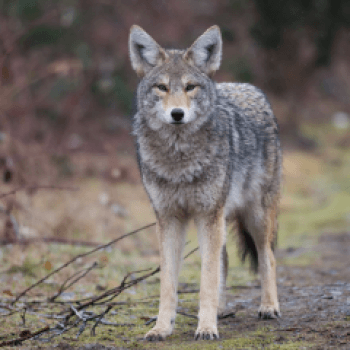
- Welcome Remarks
Join us in the PetSmart Charities of Canada room to kick off the second and last day of the 2026 Summit for Animals with a bang!
- Access to Veterinary Care: A Canadian Snapshot
Presented by: Dr. Robyn Jaynes, PetSmart Charities of Canada
Access to veterinary care is one of the most pressing and complex challenges facing both the veterinary and animal welfare sectors today. Ahead of Dr. Jeff’s keynote, PetSmart Charities of Canada will share key insights from our latest national survey of Canadian veterinarians, conducted in partnership with Gallup. The compelling findings highlight veterinarians’ perspectives on how access challenges are experienced in daily practice.
To complete the picture, findings from their first national survey of more than 2,000 Canadian pet owners will be shared, which capture the realities families face when trying to secure care for their pets. By bringing these two perspectives together, PetSmart Charities of Canada will highlight areas of tension, alignment, and missed connections, setting the stage for Dr. Jeff Young's remarks on what it means to build trust, expand access, and lead with purpose in veterinary care.
- Why Our Work Matters: Caring for Animals and the People Who Love Them
Presented by: Dr. Jeff Young, Planned Pethood International and Intermountain Humane
From a childhood spent tending animals to owning one of the busiest veterinary clinics in the U.S., Dr. Jeff Young’s journey is a testament to purpose, perseverance, and boundless compassion. Best known as the star of Animal Planet’s hit series Dr. Jeff: Rocky Mountain Vet, Dr. Jeff has spent more than three decades serving animals and the people who love them, from routine check-ups to life-saving emergency surgeries and far-reaching community outreach.
As the founder of Planned Pethood Plus in Denver, Colorado, Dr. Jeff built a practice focused on accessible, low-cost care, earning the trust of tens of thousands of clients and helping countless pets live healthier lives. Whether he’s navigating chaotic clinic days with his skilled team, performing unexpected field visits to treat wildlife and farm animals, or tackling rare and complex cases, Dr. Jeff brings humour, humility, and humanity to every challenge.
In this heartfelt and engaging keynote address, Dr. Jeff will share stories from his remarkable career: unforgettable patients, hard-earned lessons, and moments that affirmed his calling. With honesty, laughter, and insight, he’ll reflect on what it truly means to care deeply in a world full of joy and heartbreak, inspiring attendees to reconnect with their own purpose in animal welfare and veterinary care.
Attendees can expect to laugh, reflect, be inspired, and walk away with renewed energy, reminded of why our work matters and how shared stories strengthen us all.
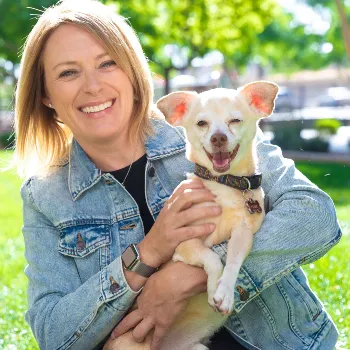
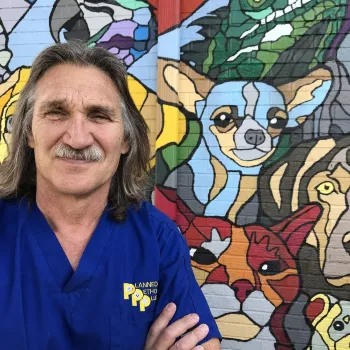
Discover. Connect. Refuel — All in the 2026 Discovery Hub
The Discovery Hub is your central stop for connection and collaboration at the Summit for Animals. Meet with exhibitors who are here to support you, the professionals and changemakers driving progress in animal welfare every day.
Explore a wide range of products, services, and tools designed to enhance your work and advance your mission. All exhibitors are located together in one convenient space, making it easy to navigate and engage.
Enjoy all-day coffee served right in the Hub. Plus, many exhibitors are offering giveaways and prizes you won’t want to miss.
Open both Summit days (April 20-21). Check the schedule and make the most of this space created for you.
Bring a little something from your organization and trade it for treasures from others! The Swag Swap is a fun way to share, collect, and discover unique items from across the animal welfare community. Swap, mingle, and take home a piece of the Summit for Animals spirit!
Fearful and undersocialized cats are among the most misunderstood and vulnerable shelter populations. Due to limited socialization, trauma, shy temperaments, or shelter stress, these cats often struggle emotionally and behaviorally, making adoption difficult. This session presents a structured, evidence-based approach to help them progress from fear to comfort with humans using desensitization and counterconditioning grounded in behavioural science.
Participants will learn stepwise protocols for desensitization and counterconditioning to petting. A major strength of the approach is its standardized tracking system, which includes three ordinal scales: Fear, Anxiety and Stress (FAS), Response to Petting (RTP), and Participation in Play (PIP). Published research has shown all three scales to have excellent inter-observer reliability when raters undergo a short training program, which is now available for free asynchronously on Toronto Humane Society’s website.
This method helps case managers assess intervention success, improve outcomes, and ensure consistency across staff and volunteers. This approach is ideal for teams seeking a humane, systematic way to help fearful cats thrive – and ultimately find homes.
Key Learnings
- How to implement a structured desensitization and counterconditioning plan to help fearful and undersocialized cats in shelters build trust and enjoy human interaction.
- Understand the value of using standardized rating tools to evaluate behaviour and welfare in shelters, and will leave with step-by-step protocols, scoring guides, and sample data-tracking templates to apply in their own shelters.
- How to evaluate cat behaviour and modify plans based on progress in consistent, safe, and data-informed behaviour modification efforts.


To many, the world of grantmaking can feel like the Emerald City—powerful, mysterious, and just out of reach. In this session, we'll pull back the curtain to reveal what funders look for before the application even begins. We will guide attendees through the essential steps of pre-application planning: identifying aligned opportunities, assessing organizational readiness, gathering key materials, and building relationships.
Like Dorothy’s journey to meet the Wizard, successful grant preparation is about following the right path, asking the right questions, and understanding what’s really behind the scenes. Attendees will leave with a clearer roadmap and insider insights to demystify the process and set their organizations up for success.
Key Learnings
- Learn how to identify and align with funder priorities
- Assess operational readiness for grant funding
- Build internal capacity to increase funding partnerships



In this session, a PhD graduate from the Ontario Veterinary College will share results from her thesis about companion rabbits.
Domestic rabbits are becoming more popular as companions. Research shows that they can be amusing, sweet, and satisfying pets, and that some owners are strongly attached. Rabbits, however, can also be destructive, unsociable, and aggressive. Unwanted rabbits may be abandoned outdoors, given away to people, or surrendered to shelters/rescues that may be at/near capacity for these unique, resource-intensive animals often needing expensive veterinary care, long stays, transfers between organizations, fosters, and waitlists.
Using results from a survey of 2000+ rabbit owners, we will explore risk factors for rabbit retention and how we might support guardians to avoid shelter intake. We will examine how companion rabbit owners respond to human-animal relationship scales designed to measure the human-animal bond and behavioural interactions with other species. Through these studies, we will gain valuable insights into the lives of rabbit owners and their rabbits, particularly house rabbits (rabbits that live completely indoors), and be better prepared to launch or enhance community-focused rabbit programs.
Key learnings
- Participants will learn about risk factors for rabbit owners considering giving their rabbit away and releasing their rabbit outdoors.
- Attendees will explore research on human-rabbit relationships (the owner’s bond and bidirectional interactions).
- This session will inform or fine-tune social media content, educational materials, and rabbit-related programs (e.g., foster-to-adopt, surrender waitlist support).


We are all probably guilty of making statements that accuse people of being ignorant. As a result, we focus heavily on the need to educate. Once we educate or promote, they will change their behaviour, and all will be resolved.
But how many of us understand the risks of smoking and do it anyway? How many of us understand just how much exercise we should do, and avoid it regardless? The list of desirable behaviours we are fully cognisant of and fail to undertake is long and varied.
Knowing that humans are motivated by factors that are far stronger than simply doing the right thing is a powerful wakeup call for those of us needing to promote responsible and humane behaviours.
We need to understand the audience’s perspectives, their motivations, and the barriers they perceive to the action, not our assumptions of them. Once we understand our audience, there is a huge menu of tactics we can choose from to leverage changes in behaviour instantaneously. We can redirect our scant resources into campaigns and initiatives that effectively improve the lives of animals.
A successful behaviour change approach is as much (if not more) about removing the barriers to action, rather than converting our target audience into animal welfarists.
Key Learnings
- We can change behaviour in an instant
- Awareness raising is only half the battle
- We need to speak to our target audience to understand them


Neonatal patients present some of the most intimidating challenges in veterinary medicine. Their small size and fragile physiology can make vascular and airway access difficult and lead to rapid decompensation. Too often, these patients are dismissed as poor surgical candidates out of fear rather than fact. This seminar will reframe that mindset.
In this session, we will explore the unique anatomic and metabolic considerations of neonates and the practical strategies that make surgical intervention not only feasible but often surprisingly straightforward. By understanding their susceptibility to hypothermia, hypovolemia, and hypoglycemia, and the nuances of anesthetic monitoring, practitioners can transform these perceived barriers into manageable, predictable variables.
Through case-based discussion and evidence-guided protocols, participants will leave empowered to approach neonatal surgical cases with confidence. With thoughtful preparation and attentive perioperative care, neonatal surgery can be lifesaving, and in many instances, as routine as surgery in their adult counterparts.
Key Learnings
- Understanding Neonatal Physiology
- Appreciate key physiologic differences that predispose neonates to rapid decompensation.
- Strategies to maintain body temperature, support glucose levels, and avoid hemodynamic collapse.
- Anesthetic Planning and Monitoring
- Practical, minimal equipment monitoring strategies suitable for general practice settings.
- Drug selection considerations: what to avoid, what to reduce, and what remains safe.
- Techniques for obtaining IV access in tiny patients, including alternatives when venous access is challenging.
- Approaches to achieving safe, effective airway management with pediatric tools and creative positioning.
- Postoperative Care for Fragile Patients
- Optimizing recovery through warmth, nutrition, pain control, and careful monitoring.
- Common pitfalls that lead to postoperative deterioration and how to prevent them.
- Shifting the Mindset
- Challenging myths that neonates are “too small” or “too risky” for surgical intervention.
- Empowering veterinarians to take on neonatal surgical cases with confidence, compassion, and competence.


This interactive session invites participants to reflect on how different understandings of coexistence influence our relationships with wildlife in urban spaces. Using coyotes as a case study, we will explore whose voices shape these narratives, how fear and misinformation can reinforce conflict, and what it might mean to also consider the perspective of the animals themselves.
Through dialogue, real-world examples, and evidence-based communication strategies, participants will learn how to reframe harmful narratives, foster empathy, and create more humane, coexistence-minded communities.
Key Learnings
- Identify collective perceptions of coexistence in urban settings and examine how multiple perspectives, including those of animals, shape these realities.
- Understand how language and framing influence public perception, policy decisions, conflict responses and welfare outcomes for urban wildlife well-being.
- Explore common harmful narratives rooted in fear or misinformation, and learn strategies to shift them toward empathy and inclusion.
- Apply communication and advocacy tools, using coyotes as a case study, to foster coexistence with a range of urban species.




Discover. Connect. Refuel — All in the 2026 Discovery Hub
The Discovery Hub is your central stop for connection and collaboration at the Summit for Animals. Meet with exhibitors who are here to support you, the professionals and changemakers driving progress in animal welfare every day.
Explore a wide range of products, services, and tools designed to enhance your work and advance your mission. All exhibitors are located together in one convenient space, making it easy to navigate and engage.
Enjoy all-day coffee served right in the Hub. Plus, many exhibitors are offering giveaways and prizes you won’t want to miss.
Open both Summit days (April 20-21). Check the schedule and make the most of this space created for you.
Behavioral euthanasia is the most taboo topic in animal welfare. Too often, shelter staff face the impossible choice between warehousing unadoptable animals indefinitely or facing backlash for making the humane — but heartbreaking — decision to euthanize.
There’s a striking lack of formal protocols for behavioral euthanasia, especially for cats. There is no feline equivalent to dog bite scales, and many shelters misclassify behavioral euthanasias as medical ones. For canines, shelter staff feel pressure to hang on to unplaceable dogs.
In this candid session, shelter consultants Sara Pizano, DVM, and Monica Tarant, feline welfare expert, lead a compassionate dialogue on when behavioral euthanasia might be ethically appropriate. They’ll help you reframe what acting in an animal’s best interest means, communicate decisions transparently, and give you practical guidelines for tough choices, especially in the context of “no-kill” sheltering.
Come away with renewed clarity, emotional support and tools to balance animal welfare with staff well-being. Because shelter ethics don’t just affect animals: They affect you. It’s time to talk about the sensitive decisions no one wants to make — but too many are forced to face alone.
Key Learnings
- Analyze when behavioural euthanasia is an appropriate and humane decision for both dogs and cats.
- Recognize signs of compassion fatigue and moral injury in yourself and your staff.
- Communicate more effectively with the public and within your organization about difficult decisions.

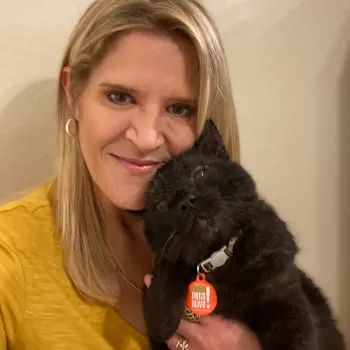

This interactive conversation between Paws for Hope's Executive Director Kathy Powelson and Fundraising Associate Sara Hoshooley will look at the 5 things Paws for Hope does to grow donor trust, build relationships at scale, and raise more money.
We'll talk about the mistakes we've made, how we do this with very limited resources, and offer a behind-the-scenes look at what really goes into building a strong fundraising culture. Using case study insights from our last three fundraising campaigns, we'll show you what's really made a difference when it comes to our fundraising success.
You'll receive tangible tips and suggestions you can take back to your organization and offer interactive opportunities to practice learnings as a group.
Key Learnings
- How to build genuine relationships with donors at a scale.
- Identifying the investments you'll need to make to make this happen (we'll give you a behind the scenes of how we did it)
- Things you can do right away to make an impact and start building a culture of philanthropy.



The Calgary Humane Society has experienced unprecedented growth in its Community Services portfolio, expanding a handful of pilot initiatives into a comprehensive network of programs addressing the intersection of human and animal needs. By adopting a social service model, we have achieved measurable success in reducing surrenders, preventing abandonment, and keeping pets in their homes through targeted initiatives such as intake diversion, seniors’ support, housing-focused programs, and emergency safekeeping.
Leveraging real program data, this session will demonstrate how connecting with human social service agencies, integrating technology for early intervention, and developing responsive community-based supports can transform shelter outcomes. Attendees will leave with concrete strategies and implementation frameworks for creating or scaling similar programs within their own organizations.
While the abstract highlights the framework, the presentation itself will bring these concepts to life through storytelling, sharing the human and animal journeys behind the data to illustrate the profound impact this approach can have.
Key Learnings
- How the Calgary Humane Society’s Community Services have grown, and the data proving their impact.
- Practical strategies to design and scale social service–aligned programs in any shelter.
- How shelters can reframe themselves as prevention-based agencies, utilizing strategic cross-sector partnerships, to keep pets with the people who love them.
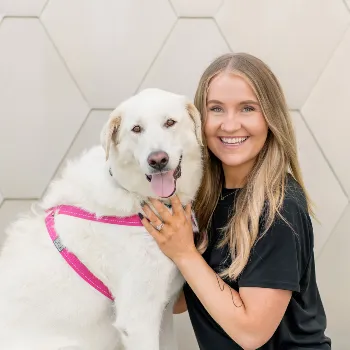

Mass sterilization is an ethical, sustainable, and effective method to control dog and cat populations. In countries with economic disparities and challenging geography, surgical services, staff, and equipment must be brought directly to the animals, rather than animals coming to clinics.
This presentation shares challenges and insights from high-volume sterilization campaigns in remote Colombia, focusing on La Guajira, a desert province at Colombia’s northernmost point. Topics include pre-campaign logistics, coordination with local advocates, setting up makeshift operating rooms, and remote postoperative follow-up.
This session offers a comprehensive view of field veterinary work where adaptability and ethical commitment are essential. It is designed for veterinarians, technicians, support staff, volunteers, and advocates interested in ethical population control and fieldwork in resource-limited settings. It also benefits organizations aiming to replicate intervention models in underserved communities like Canada’s Northern regions.
Participants will gain practical tools to plan and execute sterilization campaigns under adverse conditions and will explore community collaboration in sustaining animal welfare.
Key Learnings
- Adapting elective surgical procedures for population control in low-resource settings without compromising animal welfare.
- The benefits of the lateral surgical approach in female dogs and cats as a safe and effective alternative for mass sterilization campaigns.
- Strategies to ensure animal welfare in contexts where veterinary access is limited and often represents the only available care.
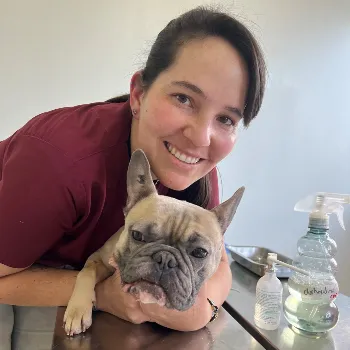

Until recently, feline infectious peritonitis, or FIP, was a fatal disease, made even more tragic because it primarily affects young cats. That has all changed, and 85% of cases can now be successfully treated. Treating FIP is relatively expensive; however, there are several ways to make management more affordable.
This talk will outline accessible approaches to FIP. It will explain how to reach a strong working diagnosis while preserving most of the shelter or client budget for medication. We will outline the medication options and provide recommendations.
The second part of the talk will describe experiences in the trenches – successes, surprises, failures and insights gained from treating cats with FIP with antiviral medications.
Key learnings
- Value-driven, cost-effective diagnostic approach to FIP
- Antiviral treatment options for FIP
- Treating cats with FIP: tips and tricks from the trenches

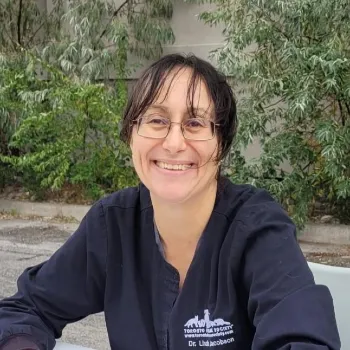

Domestic cats are skilled predators that hunt and harass wild animals, including small mammals and songbirds, but implementing mitigation strategies is complicated given their role as family members and companions. Many people have passionate and contradictory views and opinions on the presence of outdoor cats and allowing cats to wander, creating a “wicked” societal challenge where no single solution will satisfy all stakeholders. The complex and multifaceted ways in which cats interact with people and wild animals across the urban landscape mean that effective solutions must involve collaboration, intention, and science-based approaches. In this way, employing a multi-pronged approach that integrates multiple stakeholders can achieve sustainable coexistence with cats.
In this session, we will describe the complex relationships between cats, people, and wildlife, identifying multiple potential opportunities for interventions to protect urban birds and other small wild animals. We will address specific ways that city residents and municipal governments can reduce outdoor cat populations using scientifically-backed protocols and provide clear examples of how cats compromise the welfare of urban wildlife.
Key Learnings
- Gain knowledge on different ways that municipalities, pet owners, nature-lovers, and a diversity of other stakeholder groups can actively participate in improving the welfare of urban wildlife.
- Learn the necessary skill to initiate programs to reduce outdoor cat populations in their own communities, complete with explanation of a “how-to” kit that is appropriate for any level of expertise and any urban center.
- Learn the risks that outdoor cats pose on urban wildlife based on cat-borne cameras and how cat behaviour, cat demographics, and geographic location impact the severity of their impacts.


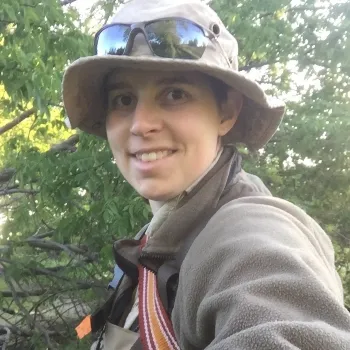

Animal welfare is rapidly evolving, but frontline shelter leaders are still navigating a challenging landscape—public pressure, limited resources, complex behaviour cases, and a workforce stretched thin. This session explores how to lead with compassion and integrity when decisions feel like compromises and ideal outcomes aren’t always possible.
Through a leadership lens rooted in ethical realism, we’ll explore strategies for making humane decisions around intake, euthanasia, and staff wellbeing during times of crisis or capacity strain. The session offers practical tools to support both animals and people in high-pressure shelter environments, with an emphasis on transparency, trust-building, and protecting the long-term sustainability of animal welfare teams. Designed for managers, directors, and program leads, this session centres the human side of sheltering—and what it takes to lead through the grey.
Key Learnings
- Learn how to lead operational teams through ethically ambiguous situations with clarity and care.
- Gain tools for communicating difficult decisions in a way that builds internal trust and external credibility.
- Explore leadership strategies to reduce moral fatigue and support sustainable decision-making under pressure.
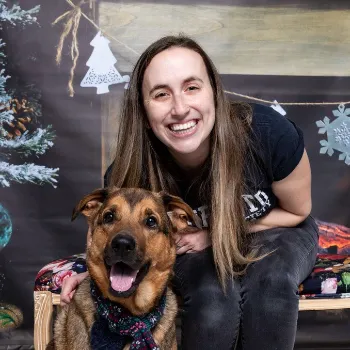

Images have created turning points in history. Animal photojournalism helps campaigners, creates proof, sparks awe and shock, influences policy, and ushers in changes in traditions and cultures. Images are tools to be wielded with skill. This session describes animal photojournalism and how it can best be used at all levels to influence stakeholders and general audiences.
Key Learnings
- What animal photojournalism (APJ) is.
- How to communicate effectively with images and words.
- Tips on how to capture compelling images using all cameras including phones.
- The trifecta of awesomeness: working with a visual artist, an NGO, and the media.


Estimating dog populations is complex but important for wildlife conservation, animal health services, and program planning. This study, part of a larger project on an animal health program in an Indigenous community in Canada, aimed to identify census methods suitable for areas with roaming dogs through a literature review and development and trial of a community-based approach.
Varying ownership and confinement statuses—owned, unowned, confined, partially confined, and free-roaming—add complexity and highlight the need for accurate methods. A literature review identified 61 articles. For mixed dog populations, the most common method was human questionnaires. Only one Canadian study in an Indigenous community was identified and used cultural knowledge and household surveys.
Establishing efficient, context-specific census methods is essential. From this review, a participatory mapping census was developed and trialed in Fall 2025, where community members reported dog and cat numbers at their households and neighbours’ homes, using a community map. Data was then mapped in Quantum Geographic Information System (QGIS) to create heat distribution maps. This approach improves understanding of effective census methods for mixed dog populations.
Key Learnings
- Estimating dog populations in communities with varying levels of dog ownership and confinement (e.g., owned, unowned, partially confined) requires tailored approaches that go beyond conventional census techniques.
- Incorporating Indigenous cultural knowledge and community participation is essential for developing effective and respectful census methods, especially in contexts where standard techniques may not capture the full picture.
- Participatory mapping can be used as a potential census tool.


When Russia invaded Ukraine in 2022, Greater Good Charities (GGC) mobilized within hours to meet urgent humanitarian, animal welfare, and environmental needs. Unlike models that focus on a single sector, GGC engaged its full capacity; disaster relief, animal care, logistics, and environmental protectionto deliver aid at scale.
Since the start of the conflict, GGC has provided nearly 12 million meals to refugees and displaced people, along with over 31 million pet meals across Ukraine. Their teams distributed 21,000+ food boxes, 12,000 hygiene kits, and 51,000 blankets; supported medical relief with 2.3 million+ items; and delivered critical veterinary services, including mobile clinics and spay/neuter programs. Beyond people and pets, they sustained 24,500 bee colonies by supplying more than 147,000 lbs of sugar syrup and pollen substitute.
Centered on flexibility, partnership, and operational excellence, GGC coordinated hundreds of grants and shipments, managed last-mile delivery in war zones, and strengthened local partners. This session explores how an integrated, cross-sectoral model can amplify disaster response and resilience for people, animals, and the environment.
Key Learnings
- Listen locally and be flexible. An effective response depends on adapting quickly while respecting local knowledge and capacity
- Cross-sector collaboration expands impact. By engaging animal welfare, humanitarian aid, and environmental partners together, organizations can deliver more comprehensive, efficient, and sustainable relief.
- Partnerships support long-term recovery. Building strong, creative alliances with local organizations enables broader reach, faster response, and innovative solutions in crisis situations.
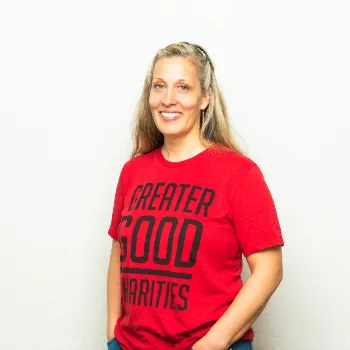

Fantastic Beasts Veterinary Services operates under a unique three-division model that allows them to serve a broad spectrum of animal welfare needs while providing a spectrum of care to all:
- A full-service traditional veterinary hospital.
- A dedicated rescue division that partners with local shelters and rescue organizations to offer low-cost vet services, including spay/neuter/dental surgery.
- Pawsitive Care, their low-income support program offering subsidized veterinary care to underserved communities.
This presentation will walk through how Fantastic Beasts Veterinary Services developed this structure, why they felt it was necessary, and how they make it all work under one roof.
This model has allowed them to serve not only clients who can afford care, but also the animals and families who can't. Sharing this journey with other professionals could spark new programs, inspire similar initiatives, and help advance more veterinary access across communities.
Key Learnings
- Learn how any vet clinic can have this type of model, if they wish to do so
- Community trust is built through consistency and transparency
- Flexibility and adaptability are vital
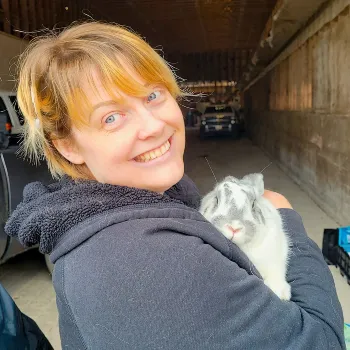
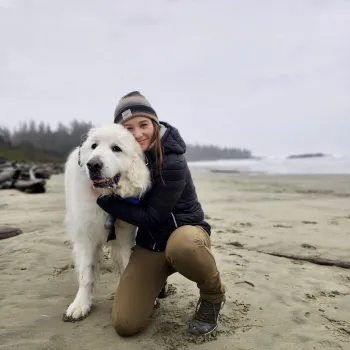
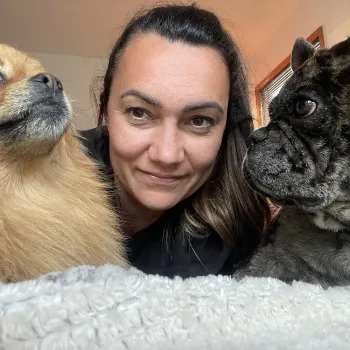

This panel brings together speakers of the Kitasoo Xai'xais and Tla'amin Nations with diverse lived wildlife experience. We will share traditional knowledge and expertise in policy, community organizing, and on-the-ground conservation experience to challenge the status quo. We will also discuss the importance of wildlife co-existence in our day to day lives, that aligns with our traditional knowledge practices.
Through storytelling and case studies, we will share examples of systemic barriers that prevent timely, ethical, and science-based action for wildlife and the impact when decisions and change come too late. We will highlight the critical importance of committing to the TRC Calls to Action and to the UNDRIP, with the intentional inclusion of Indigenous voices and application of traditional knowledge, improving ecological stewardship for all. We will present emerging models of governance, co-management, and community-led conservation efforts that are already delivering better outcomes.
Recognizing the human-caused hazards created in an increasingly built environment, participants will be inspired to use a lens of Reconciliation in day-to-day decision-making as it affects urban, suburban and other wildlife.
Key Learnings
- Learn practical approaches to decolonizing wildlife policy.
- Exercise mindfulness to ensure decision-making is inclusive, collaborative, and responsive to diverse voices.
- Find inspiration to reduce harms to wildlife and habitat as an act of reconciliation.


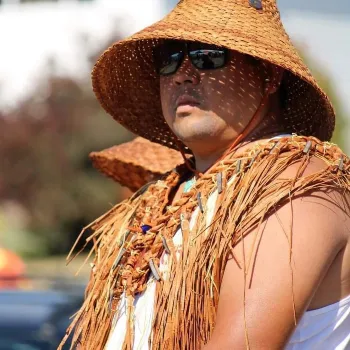

Join Humane Canada's CEO, Barbara Cartwright, for a powerful closing conversation that reflects on how the animal welfare sector has evolved in recent years, the challenges we are navigating right now, and what lies ahead. Drawing on real-world experience, sector-wide insight, and lessons learned since the pandemic, Barbara will share stories, perspectives, and practical takeaways to help you move forward with clarity and purpose after the conference ends.
This inspiring closing keynote will leave you feeling energized, grounded, and ready for what’s next.
This is a presentation you won’t want to miss!



